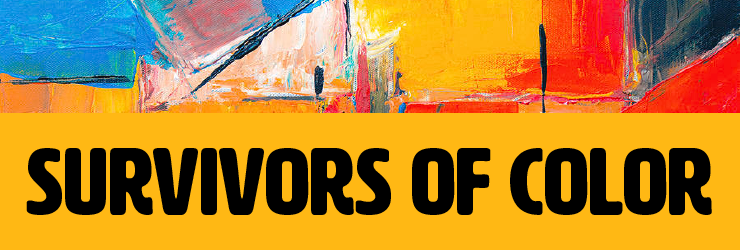WHAT’S DIFFERENT ABOUT INTERPERSONAL VIOLENCE FOR SURVIVORS OF COLOR?
CARE understands sexual violence/dating violence usually intersects with other forms of oppression, making it essential that we discuss and plan for all circumstances that may arise because of this. While we know interpersonal violence knows no boundaries, we live in a society that is built on systems of privilege which allow some people to maintain power and control while others are left vulnerable. Healing from trauma is not a one-size-fits-all. We acknowledge that each person may hold many intersecting identities and want to provide a safe environment for all people.
Survivors of color have unique experiences related to navigating systems of oppression which include medical providers, police officers, university officials, and/or other individuals or institutions in positions of power. Each community of color faces challenges that are unique to their own experiences. However, there are some common barriers that communities of color may face.
Barriers to accessing services can look different for survivors of color. They can include, but are not limited to, the following:
- Cultural/religious beliefs that restrain the survivor from leaving the harmful situation or getting others involved
- Fear that their situation will confirm negative stereotypes held about their specific community or ethnicity
- Fear of reporting due to pressure from family, friends, or community
- Intersecting stigmas such as homophobia/transphobia, racism, and survivorship
- Legal status of the survivor and/or perpetrator
- Economic barriers that may prevent survivors from receiving adequate and affordable support and services
- Advocates not understanding the experience of survivor of color due to differences in culture, shared experiences, and/or intersectionalities
CONFIDENTIALITY
CARE is a confidential service for survivors. What this means is that we are not required to report as per Title IX responsible employee requirements. We are able to provide a safe space to discuss any and all concerns a survivor may have without fear.
HOW WE CAN SUPPORT YOU
CARE knows that everyone’s experiences are unique and valid and will support you explore your options. We strive to create a space that acknowledges the different experiences and barriers that individual community members face and where survivors feel safe to discuss as much or as little as they choose to.
Make an appointment today by filling out our online appointment request form.
CAMPUS RESOURCES:
- African American Resource Center & Cultural Center (AARCC)
- American Indian Resource Center (AIRC)
- Asian American/Pacific Islander Resource Center (AA/PIRC)
- Chicanx Latinx Resource Center (El Centro)
- Lionel Cantu Queer Center
- Women’s Center
- Counseling & Psychological Services (CAPS)
COMMUNITY & NATIONAL RESOURCES:
- Mijente
- Self Care For People of Color After Psychological Trauma
- The National Organization of Sisters of Color Ending Sexual Assault (SCESA)
- Women of Color Network
Asian American Resources:
- Asian American/Pacific Islander Resource Center (AAPIR) at UCSC
- API Chaya
- Asian Pacific Institute on Gender-Based Violence
- Asian/Pacific Islander Domestic Violence Resource Project (DVRP)
- Visibility Project
- Detox Local
African American/Black Resources:
Latinx Resources
- Casa de Esperanza
- Mujeres Latinas en Acción
- The National Latin@ Network for Healthy Families and Communities
- Únete a la Solución
Muslim Resources
Native American/American Indian Resources:
- American Indian Resource Center (AIRC) at UCSC
- Mending the Sacred Hoop
- National Indigenous Women's Resource Center
QTBIPOC Resources

